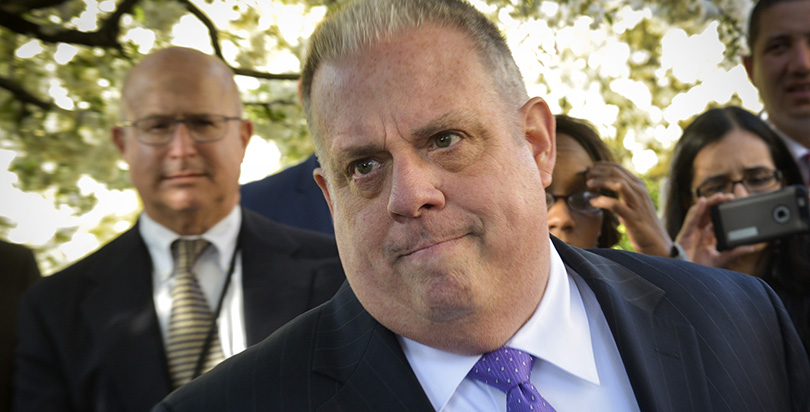Update: Md. Lawmakers Override Veto of Bill to Limit School Accountability And Education Reform

“This afternoon, I’m calling on the members of the legislature, on both sides of the aisle, to do the right thing for our kids,” Hogan said at the Baltimore Collegiate School for Boys. “Please, put aside the partisan politics and sustain this veto. Please don’t turn the clock back on all of the progress that we’ve made together for our kids. Every single one of our Maryland children who are trapped in these failing schools deserves better than this.”
Like all states, Maryland has been working to create a plan for complying with the new federal Every Student Succeeds Act, which gives states renewed authority over school accountability while requiring standardized testing and interventions in low-performing schools. But unlike many states, Maryland has seen a power struggle develop between the Republican governor and the Democratic-controlled legislature over who has final say over local control of the schools.
For months, the state Board of Education has been considering an ESSA plan that includes options for fixing the state’s low-performing schools, such as charter schools, vouchers, and even possibly a state-run “recovery school district” similar to the one created in New Orleans after Hurricane Katrina. The board is dominated by Hogan appointees and includes some noted education reform activists.
But last month, the General Assembly passed a bill banning education-reform-focused solutions for turning around low-performing schools, including charter school conversions, vouchers, and a “recovery” school district. The bill also would make academic achievement count for 65 percent of a school’s accountability measure — a number Hogan says is too low to fulfill federal requirements.
The measure passed with a veto-proof majority. Lawmakers have until Monday, when the legislative session ends, to override.
(The 74: Is a Maryland Teachers Union Organizer Shepherding Weak ESSA Accountability Bill?)
“This bill would actually prohibit the State Board of Education from finally taking any substantial actions to make any improvements to any failing schools,” Hogan said. “It prevents much-needed accountability in our school system, and it would make it much more difficult to identify the schools that are falling behind.”
Democratic Sen. Craig Zucker, who sponsored the legislation, said in a release the proposal was adopted to counter education reforms promoted by President Donald Trump and Education Secretary Betsy DeVos, who he said “want to privatize our schools.”
“Marylanders don’t want to see school privatization come to our state, and they want Gov. Hogan to protect our students and educators,” Zucker said. “This legislation does just that.”
The bill has support from the Maryland State Education Association, the NAACP Maryland State Conference, and the ACLU of Maryland, among others. Linda Darling-Hammond, a Stanford education professor and president of the Learning Policy Institute, praised the bill in a letter to lawmakers.
“While academic outcome indicators are important, it is equally important to include indicators of student and school conditions that predict outcomes, so that educators have information to use for diagnostic purposes and improvement decisions,” she wrote.
In a statement following Hogan’s veto, Maryland State Education Association President Betty Weller said the governor’s maneuver “isn’t out of left field, but it’s certainly out of touch.”
The state board, including two members who were appointed by the previous governor, Democrat Martin O’Malley, unanimously opposed the bill.
In a letter to lawmakers, the board said the legislation infringes on state education officials’ authority to set policy. “Even worse,” board member and education reformer Andy Smarick told The 74, “it devalues student achievement, dictates how the state reports school results to parents and communities, and limits instead of expands the state’s ability to help boys and girls in persistently underperforming schools.”
MarylandCAN, the local chapter of a national education reform advocacy group, reached a similar conclusion. “We cannot fix what we cannot see,” interim director Jenese Jones said in a statement. “This bill actively denies schools and teachers valuable data and insight by reducing the weight and importance of academic indicators in the accountability system.”
Get stories like these delivered straight to your inbox. Sign up for The 74 Newsletter

;)
